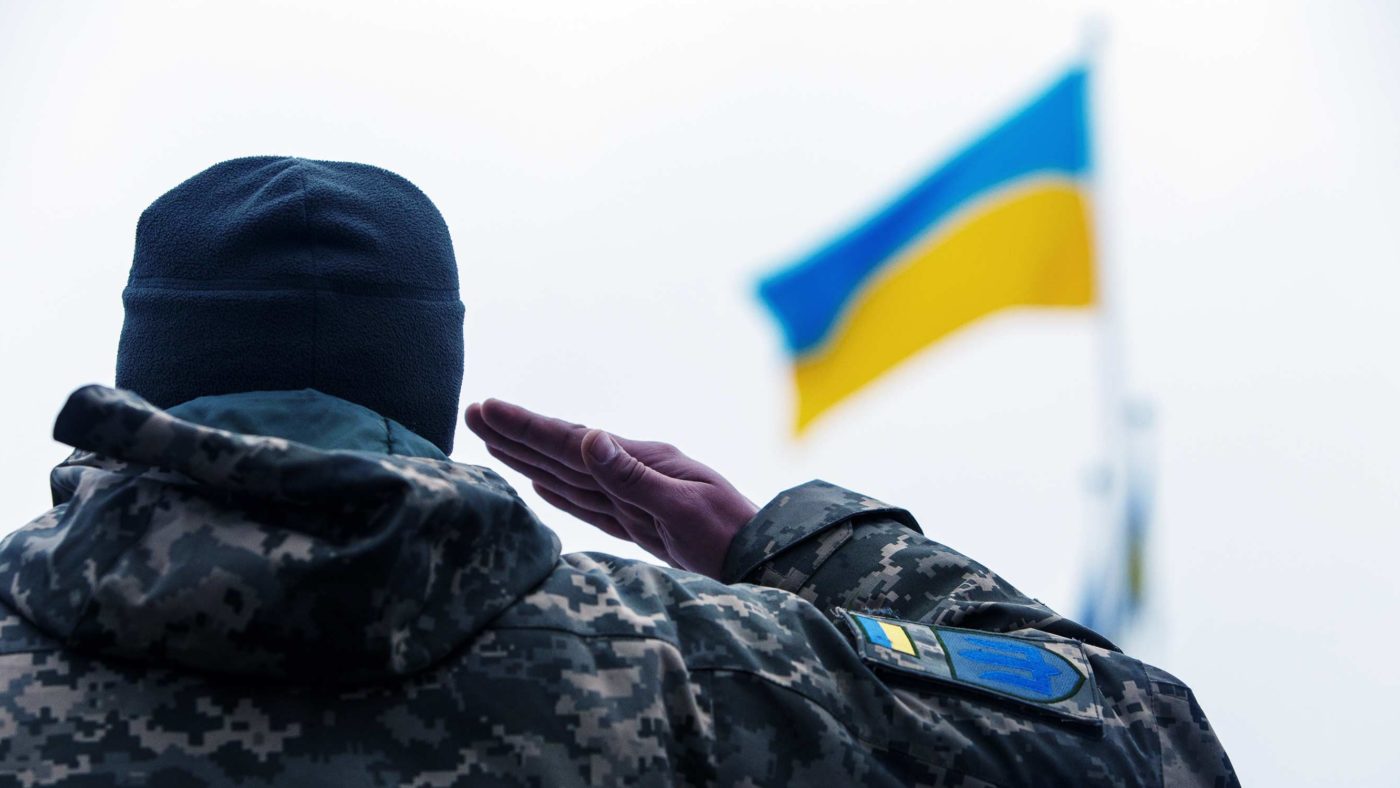News that the UK is sending anti-tank missiles and other equipment to help shore up the defence of Ukraine’s borders is as welcome as it is unsurprising. While too many Western countries have vacillated and offered excuses in the face of clear Russian aggression, Britain has been a steadfast partner to Ukraine. It was no accident that during last year’s celebrations of 30 years of the country’s independence, it was the British Army that marched first in the international contingent.
Britain’s resolve stands in stark contrast to some of our Western partners. Just yesterday, in a scarcely believable comment, Joe Biden appeared to give the green light for Russia to attack Ukraine, provided it was only a ‘minor incursion’. In the face of such ambivalence, it’s little wonder that Vladimir Putin has felt emboldened to build up his country’s military presence on its neighbour’s border.
Hundreds of thousands of additional Russian forces are now stationed in illegally occupied Crimea, Rostov Oblast, Belgorod Oblast, and Voronezh Oblast – with other troops arriving in neighbouring Belarus at the beginning of January. Their numbers have been rising since the ‘military exercises’ in April 2021, when Russia first increased its presence on the border before ‘demobilising’. However, this demobilisation didn’t send troops home, but assigned them to new bases close to Ukraine.
Nor has the Kremlin made much secret of their desire to extend Russia’s territory. Putin himself has published a lengthy, dubiously argued essay ‘On the Historical Unity of Russians and Ukrainians’, replete with ropey arguments and outright falsehoods designed to claim that Ukraine and Russia are, in fact, one people cruelly separated by the vicissitudes of recent history. (It’s well worth reading Defence Secretary Ben Wallace’s thorough debunking of Putin’s claims.)
Britain’s fight
Some may wonder what business Britain has getting involved, even by proxy, in a conflict far away in eastern Europe. Yet this is in many ways our fight too. Not only is it high time liberal democracies stood up for their values in the face of brutish authoritarianism, but the UK itself has repeatedly found itself on the end of the Kremlin’s aggression.
Britain has long been the target of what are known in intelligence circles as ‘Active Measures’ – a programme of political disinformation, subversion, and espionage set up during the Cold War that has continued into the modern era. In the last year alone we have seen Russian backed groups hack into police databases, local councils, and even research into the Covid vaccines. We have seen them threaten British personnel on a naval ship in the Black Sea.
But perhaps most sinister of all are the numerous murders on British soil, carried out with a mixture of cold-blooded intent and complete recklessness towards bystanders.
The best known of these cases are two former KGB operatives, Alexander Litvinenko and Sergei Skripal. Litvinenko died after being poisoned with radioactive polonium in a London hotel in November of 2006, while Skripal and his daughter Yulia survived an attack with the nerve agent Novichok in 2019. In both cases, the British authorities identified suspects closely linked to the Kremlin, but attempts to extradite them fell on deaf ears.
Though many of the deaths remain unexplained and murders unsolved, it’s striking just how many people who have displeased the Kremlin have ended up dead or survived assassination attempts.
Two days before Litvinenko was poisoned, Russia’s permanent representative to the International Maritime Organisation, Igor Ponamarev, died after mysteriously falling ill after a night out at the opera in London. He had been due to meet Mario Scaramella, a lawyer who was investigating the activities of the FSB – the successor organisation to the KGB – and had interviewed Litvinenko.
In January 2007, Yuri Golubev, a co-founder of the Yukos oil company, was found dead in his London apartment. In February 2008 Georgian national Badri Patarkatsishvili died of a sudden heart failure. His death was ruled ‘suspicious’ by Surrey Police. Two other businessmen connected to Patarkatsishvili – Boris Berezovsky and Nikolai Glushkov – were both found dead in their homes under suspicious circumstances. Glushkov, who was found with strangulation marks on his neck in 2019, had previously survived a poisoning attempt in 2013.
And the list goes on. In March 2012, businessman German Gorbuntsov survived a shooting in central London,. while In November of the same year whistleblower Alexander Perepilichnyy collapsed whilst running near his home in Surrey. He had been involved with Hermitage Capital, working with Sergei Magnitsky and Bill Bowder on raising cases of serious corruption inside the Russian government.
In November 2019 Dmitry Obretsky, an oligarch, was mown down by a car in Surrey. Close friends warned that it may not have been an accident. And just two months ago, Irina Izmestieva, the ex-wife of a jailed Russian senator, was found dead in her home in Kensington. She had been involved in a property dispute with figures inside the Kremlin.
While the circumstances of many of these deaths could best be described as ‘murky’, they represent a clear pattern of astonishingly brazen activity on British. We should bear that in mind when we consider the situation in Ukraine, and the presence of British troops in Poland, Estonia, Latvia and Lithuania. In the face of Vladimir Putin’s barbarous regime, ours should be a policy of containment, not appeasement.
Click here to subscribe to our daily briefing – the best pieces from CapX and across the web.
CapX depends on the generosity of its readers. If you value what we do, please consider making a donation.


